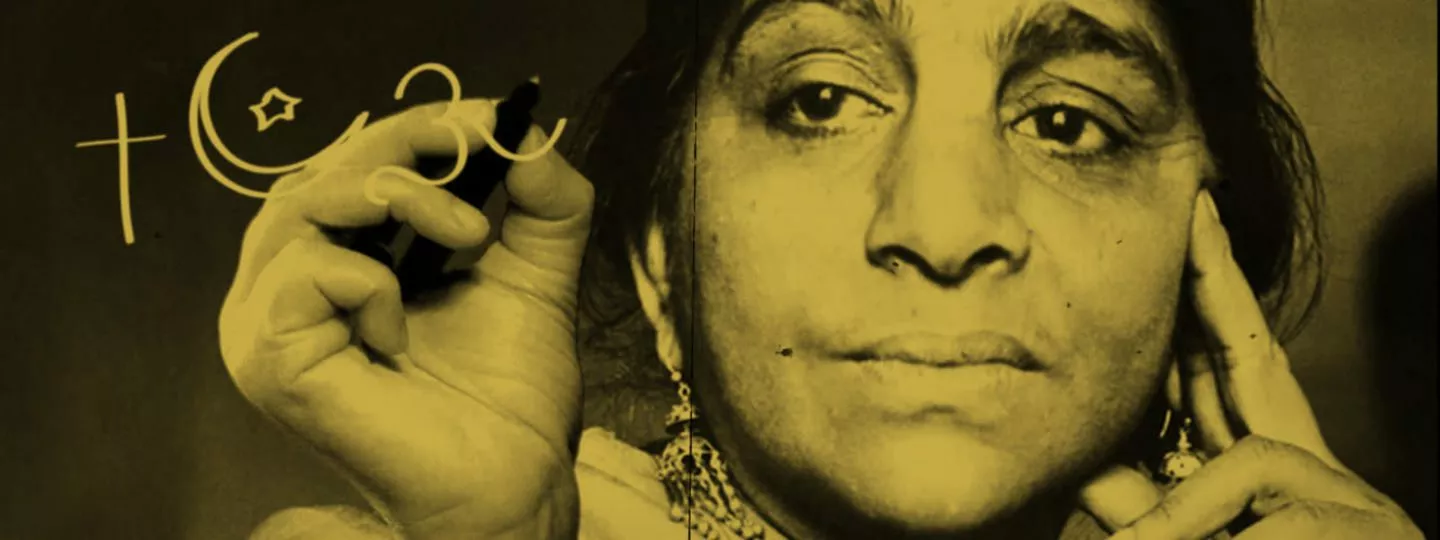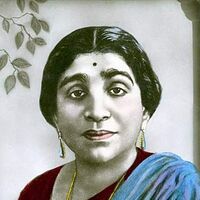
Sarojini Naidu
Sarojini Naidu (née Chattopadhyaya; 13 February 1879 – 2 March 1949), also known by the sobriquet The Nightingale of India (Bharatiya Kokila), was a child prodigy, Indian independence activist and poet. Naidu was the second Indian woman to become the President of the Indian National Congress and the first woman to become the Governor of Uttar Pradesh state. Her birthday is celebrated as Women's Day in India.
Sarojini Naidu (née Chattopadhyaya; 13 February 1879 – 2 March 1949), also known by the sobriquet The Nightingale of India (Bharatiya Kokila), was a child prodigy, Indian independence activist and poet. Naidu was the second Indian woman to become the President of the Indian National Congress and the first woman to become the Governor of Uttar Pradesh state. Her birthday is celebrated as Women's Day in India.
Early years
Sarojini Chattopadhyay, later Naidu, belonged to a Bengali family of Kulin Brahmins. She was born in Hyderabad, India as the eldest daughter of scientist, philosopher, linguist and educator Aghornath Chattopadhyaya, and Barada Sundari Devi, a Bengali poetess. After receiving a doctor of science degree from Edinburgh University, her father settled in Hyderabad State, where he founded and administered the Hyderabad College, which later became the Nizam College in Hyderabad. Her father was a linguist and thinker, and the first member of Indian National Congress in Hyderabad. Her mother, Barada Sundari Devi, was a poetess baji and used to write poetry in Bengali.
Sarojini Naidu was the eldest among the eight siblings. One of her brothers Birendranath was a revolutionary and her other brother Harindranath was a poet, dramatist, and actor.
Education
Sarojini Naidu was a brilliant student. She was proficient in Urdu, Telugu, English, Bengali, and Persian. At the age of 12, Sarojini Naidu attained national fame when she topped the matriculation examination at Madras University. Her father wanted her to become a mathematician or scientist but Sarojini Naidu was interested in poetry. She started writing poems in English. Impressed by her play Maher Muneer, the Nizam of Hyderabad gave her scholarship to study abroad. At the age of 16, she traveled to England to study first at King's College London and later at Girton College, Cambridge. There she met famous laureates of her time such as Arthur, Symons and Edmond Gosse. It was Gosse who convinced Sarojini to stick to Indian themes-India's great mountains, rivers, temples, social milieu, to express her poetry. She depicted contemporary Indian life and events. Her collections "The golden threshold (1905)", "The bird of time (1912)", and "The broken wing (1912)" attracted huge Indian and English readership.
Indian Freedom Fighter
Sarojini Naidu joined the Indian national movement in the wake of partition of Bengal in 1905. She came into contact with Gopal Krishna Gokhale, Rabindranath Tagore, Muhammad Ali Jinnah, Annie Besant, C. P. Ramaswami Iyer, Mahatma Gandhi and Jawaharlal Nehru.
During 1915-1918, she traveled to different regions in India delivering lectures on social welfare, women empowerment, and nationalism. She awakened the women of India and brought them out of the kitchen. She also helped to establish the Women's Indian Association (WIA) in 1917. She was sent to London along with Annie Besant, President of WIA, to present the case for the women's vote to the Joint Select Committee.
President of the Congress
In 1925, Sarojini Naidu presided over the annual session of Indian National Congress at Kanpur. In 1929, she presided over East African Indian Congress in South Africa. She was awarded the Kaiser-i-Hind medal by the British government for her work during the plague epidemic in India. In 1931, she participated in the Round table conference with Gandhiji and Madan Mohan Malaviya. Sarojini Naidu played a leading role during the Civil Disobedience Movement and was jailed along with Gandhiji and other leaders. In 1942, Sarojini Naidu was arrested during the "Quit India" movement and was jailed for 21 months with Gandhiji. She shared a very warm relationship with Gandhiji and used to call him "Mickey Mouse".
Literary career
Sarojini Naidu began writing at the age of 12. Her play, Maher Muneer, impressed the Nawab of Hyderabad. In 1905, her collection of poems, named "The Broken Wings" was published. Her poems were admired by many prominent Indian politicians like Gopala Krishna Gokhale and Jawaharlal Nehru.


